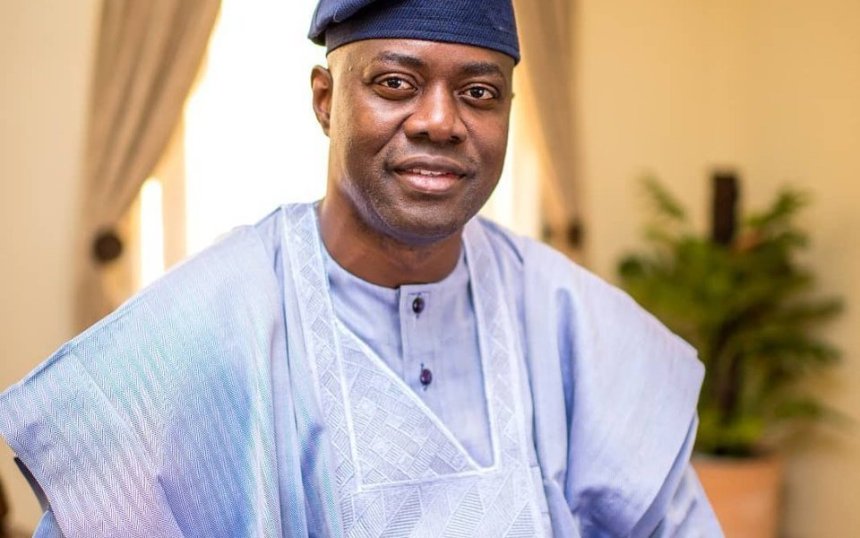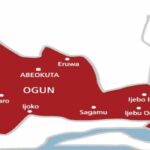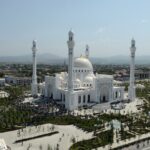The Oyo state government on Sunday declared that places of worship located in the state are exempted from paying levies and taxes.
Rev. Idowu Ogedengbe, the Executive Assistant to the state governor, Seyi Makinde, disclosed this at the thanksgiving mass to celebrate the 70th year birthday of the Catholic Archbishop of Ibadan Diocese, Most Rev. Gabriel Abegunrin held at the Church of Ascension, Bodija, Ibadan at the weekend.
He stated that any places of worship that do businesses such as establishing of schools, universities, hospitals, bakeries, and so on must pay tax to the government since it was a profit-making venture.
While delivering Governor Makinde’s message at the service, Rev. Ogedengbe said the government seeks the support of the church in ensuring that everybody pays tax.
He, however, noted that as members of the church, they should ensure they pay their taxes regularly, stressing that members of the body of Christ should pay their tax and not the church itself.
“As Christians, the scripture says that we should submit to the law of the land. They should pay their tributes; so Christians are meant to pay their tributes, taxes to the government because it’s what we have to support government to do what they have to do to tackle insecurity, provide good road network, education, agriculture and all of other amenities.
“Not necessarily the church but the members of the church; they are citizens, and all citizens should pay their taxes. So, individuals that constitute the church, and the mosque must pay their taxes, because at the end of the day people come to church, mosque and they give their tithes, offering and most of those people have already pay their taxes. And if they have paid their taxes, it will be of more or less double incidence of taxation if you now begin to tax the church, mosque as a body.
“It’s a community of those who have paid taxes to government as citizens. As long as the people who constitute the church, mosque are paying tax, the church, mosque are exempted.
“We want to encourage the church, mosque to be more disposed to supporting their spiritual involvement, in terms of providing support for the less privilege, providing humanitarian services and all those stuff, which churches and mosques are meant to be doing too.
“So, instead of giving the money as a whole to government, churches and mosques should have a plan of action towards supporting the needy, supporting the under-privileged in the society.
“Some churches and mosques that have schools, they should try to reduce the school fees, and whatever they are charging is more or less close to what government is charging. We have churches and mosques promoting education, promotion good health care too.
“Some have hospitals, they should as much as possible make it humanitarian, not necessarily on commercial basis.
“As long as churches and mosques are participating and partaking in the responsibility of government and alleviating the responsibility of the government through provision of education, provision of healthcare, and other humanitarian services then let the churches and mosques be, because the people that constitute the church, mosque are the people that are expected to pay their taxes as members of the society.
“And so, for the government to be charging them again, that will be double taxation, because the church, and mosque are not isolated bodies. They are community of believers.
Speaking further, Ogedengbe explained that if any church or mosque is doing business, like an income generating venture, “then they must pay tax on that income-generating business.”
For example, he added that churches and mosques having universities, bakeries, pure water company, running services and so on, are urged to pay taxes because it is income generating and profit-making business “and as such, they must pay tax on such business to the government.”
In his remarks, the President, Catholic Bishops Conference of Nigeria, Most Rev. Augustine Akubueze who led about 50 archbishops across the country to the event described the celebrant as a man who has dedicated his life to the church and wished him many more years of service to the Lord.
Also, the Publisher of the defunct Third Eye newspapers, Chief Akanni Aluko prayed that God should continue to keep the celebrant and grant him good health to continue to serve the church.
“He is a father to many in the church. He is not ordinary father; he acts as one, since I have been sick, I can tell you confidently that he sees me already twice every month for the past 19 years. He prays for me and everything that concerns me is his problem,” he said.
Dignitaries present at the event include the Ooni of Ife, Oba Adeyeye Enitan represented by Oba Fayemi Olumayowa, the Ekerefe of Erefe of Ife and members of Olubadan Advisory Council including High Chief Eddy Oyewole.




